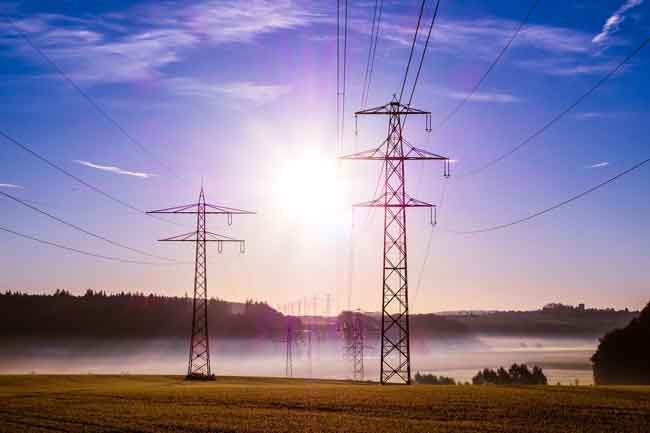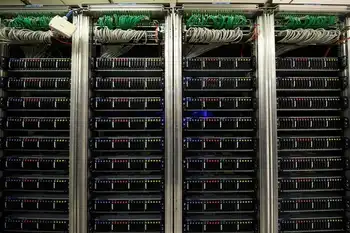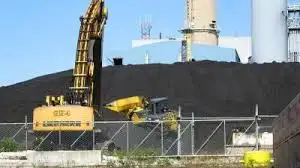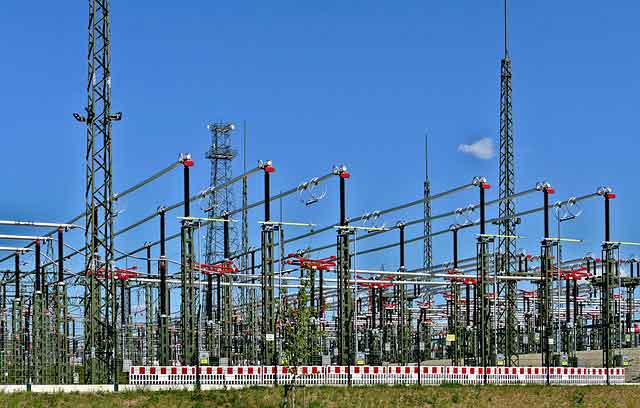Former EPA chief says nuclear is needed
By Associated Press
Electrical Testing & Commissioning of Power Systems
Our customized live online or in‑person group training can be delivered to your staff at your location.

- Live Online
- 12 hours Instructor-led
- Group Training Available
Lawmakers are weighing a renewable electricity standard, which would require utilities to get a minimum percentage of their power from sources such as wind, solar and geothermal.
Whitman said in a telephone interview that she'd like to see it broadened to a "green" standard that includes nuclear power. She argued that renewable sources alone won't be able to meet the country's growing energy needs.
Whitman co-chairs a nuclear energy-financed group, the Clean and Safe Energy Coalition, and is paid by the nuclear industry.
Backers tout nuclear plants as a clean source of energy because they don't emit greenhouse gases blamed for global warming while generating electricity. But critics note that carbon is emitted during the mining and enrichment of uranium, and point to the government's lack of a long-term plan to store commercial radioactive waste.
"What we want is clean, green energy," Whitman said. "And you should let the market decide which form is going to work the best. If you say renewables, you can't include nuclear, because it does rely on uranium, and that's a finite resource."
"I get very leery when Congress picks the winners within any band of energy source," she added.
Still, Whitman said she was fine with a policy that required a minimum percentage of clean energy be used.
"There's a place for that kind of standard, because we do care about our air quality" and climate change, said Whitman, a moderate Republican who was governor of New Jersey and then served in the administration of President George W. Bush.
The idea of a broader clean energy mandate has been kicked around Capitol Hill, but it doesn't appear to have much of a chance in this session of Congress. Last month, the chairman of the Senate energy committee, New Mexico Democrat Jeff Bingaman, introduced legislation that would set the renewable electricity standard at 15 percent by 2021, and his spokesman stressed that the point of the mandate is to boost renewable forms of electricity.
"Sen. Bingaman has a solid record of support for nuclear power, which is an important part of our nation's energy mix," said spokesman Bill Wicker. "But he also knows that nuclear is a mature industry which already has benefited from a tremendous amount of federal support for more than half a century."
Bingaman hopes to get a vote on his bill in a lame duck session of Congress after the elections, but it won't be an easy sell. Opponents of a mandate in the Southeast argue that the region lacks renewable sources like abundant levels of wind.
Richard Caperton, a policy analyst who works on clean energy issues at the Center for American Progress, said that renewable sources have benefits that go beyond low carbon emissions, such as not generating waste. He said he'd prefer that the focus stay on renewables.
"That said, if people are serious about clean energy standards, there's potentially a way to involve nuclear power," Caperton said. One option, he said, would be a national standard with regional variations. Under that scenario, the Southeast could use nuclear toward its mandate — but renewable sources would count more toward the minimum requirement.
Rob Gramlich, a lobbyist for the American Wind Energy Association, said he opposed any tinkering with the mandate pending in the Senate.
"The renewable electricity standard is ready to be passed right now," he said in a statement. "It's not the time to throw it out and start all over."











